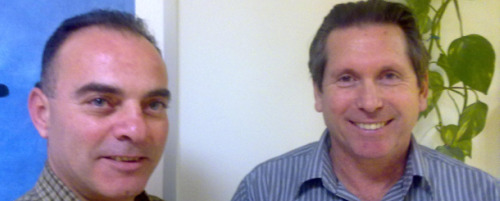A flagship incubator in Israel is helping to create coexistence while ensuring that Muslim and Christian Israeli Arabs develop expertise in biotech and the life sciences.

Israel’s Muslim and Christian Arabs can develop expertise in biotech and life sciences thanks to a national business project created in 2002. While the Jewish state was founded as a home for Jewish people from all over the world, it is also home to Arab Muslim and Arab Christian minorities, mostly living in the Galilee region in the north of the country.
In the United States, equal opportunity initiatives are well developed to ensure that blacks, Asians, Latinos and every other minority can access education and find gainful employment and opportunities. Israel is providing something similar for its minorities.
Based in Jesus’ boyhood home in Nazareth, a team of seven at New Generation Technology (NGT) is doing more than providing Israeli Arabs with access to jobs. The tech incubator company, funded by the government and private investors, is amplifying the expertise in the Arab community so that its members can interact with the population at large and grow companies that will ultimately impact the world.
“We also have one IT company,” Yosi Turkaspa, CEO of NGT tells ISRAEL21c. “But most are in the area of biotech and life sciences. It was partly a strategic decision. If you look at the Arab community in Israel these are the areas in which they are educated. Most of their PhDs are in biology, medicine, pharmaceuticals and dentistry, more than electrical engineering.”
Working together as equals
An hour’s drive from Tel Aviv, the incubator houses about 20 startups. And although the focus is on the Arab sector, the companies’ management personnel come from both the Arab and Jewish sectors, making it a unique project where the two populations are encouraged to work and build together.
“We are special because we are supporting Arab and Jewish entrepreneurs,” says Turkaspa. “We attract Arab entrepreneurs, highly educated guys with PhDs coming to us trying to start their own businesses.” While there are about 20 similar startup incubators in Israel, NGT is the only one owned by both Arab and Jewish businesspeople.
Among the most promising companies are Capsutech, an encapsulation technology that works to increase the efficacy of major cancer drugs such as taxol and doxorubicin. The company, that uses molecular-encapsulation within a polymer, was founded in 2006 by the entrepreneur Israeli Arab Dr. Jallal Gnaeem. Israeli Jew Eyal Neria is the CEO.
Business beyond borders
Another promising company for international investors is VPSign. Founded by Belal Lehwany in November 2008, the company’s technology assigns a digital signature in face-to-face settings, such as at banks; when purchasing cell phones; at insurance companies; and anywhere else where an official signature has to be digitally recorded.
The company tackles the problem of rendering digital signatures admissible in court. While historically people have used pen and paper, more and more transactions are being sealed with digital signatures. VPSign plans to offer a new type of tablet screen on which signatures can be recorded safely and reliably.
Tackling resistance to antibiotics is the story behind Lostam Biopharmaceuticals founded by Dr. Neville Lewis in October last year. Commonly leading to infections in hospitals, the company has found a way to overcome bacterial resistance to antibiotics through the development of a new antibody platform.
Investing in peace through biotechnology
It is these three companies and more than a dozen others that NGT invites the public to join and invest in. And NGT is only part of the story, as 40 to 50 Israeli Arab biotech companies have already made their mark in the business.
Consider Enzymotic, a developer of biological enzymes, and Or Alpha Omega which diagnoses neurological disorders. Flourinex, also incubated at NGT, is a dental product developer founded by Kamal Khwald.
Talking about peace is one thing. Building it and investing in it through Arab-Jewish initiatives at NGT is another. Located in an Arab city, with a management team of both Arabs and Jews, the Israeli Arabs “feel comfortable here. It is closer to where they live,” says Turkaspa. “They look around and can see Arabs and Jews working together and feel more at home than at another incubator in the country.”












